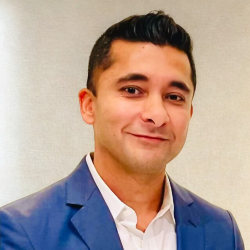While the COVID-19 pandemic has splashed clinical trials news across the front pages and atop the nightly news for more than a year, the workforce remains something of a “hidden industry” that potential employees don’t think of when mulling career options, says Danielle Coe, CEO and founder of Black Women in Clinical Research.
“There is a place for everyone here,” Coe says. She zeroes in on one of the most common misperceptions that may be discouraging new entrants to the field when she notes that “you don’t need a science background” to find a great spot in the industry. “There are lots of positions people might be interested in and qualified for, but they aren’t aware of clinical research as a career path,” she adds. “There is so much room for professional growth in clinical research.”
Coe shared her career story, insights, and valuable lessons learned along the way with fellow clinical trial professionals Rod Walker, senior director for healthcare operations at Javarra, and Aldona DiSandro, a clinical research associate with Merck Research Labs, in a recent ACRP webinar.
DiSandro, Walker, and Coe hope to encourage new professionals or those considering a career change to explore the exciting opportunities in clinical research.
The COVID-19 pandemic has certainly “opened some eyes,” when it comes to being aware of clinical trials, Coe says. However, she’s calling on others to join her in efforts to “take it to the next level and help connect potential employees with mentors” and others who can help connect them with study sites and other employers to find a quality job in an important industry. “We need to create a pipeline between prospective workers and contract research organizations and sponsors,” she asserts.
“Clinical research is a great industry, and there’s lots of promoting from within,” Coe adds, but industry must do a better job of attracting and helping new applicants, particularly in traditionally underserved areas, to join the ranks of the profession.
Walker also hopes to encourage a wider group of physicians to take on important work as principal investigators in clinical trials. He and others have noted that primary care physicians and other medical personnel are often the people who first alert a patient to a potential clinical trial.
Author: Michael Causey



